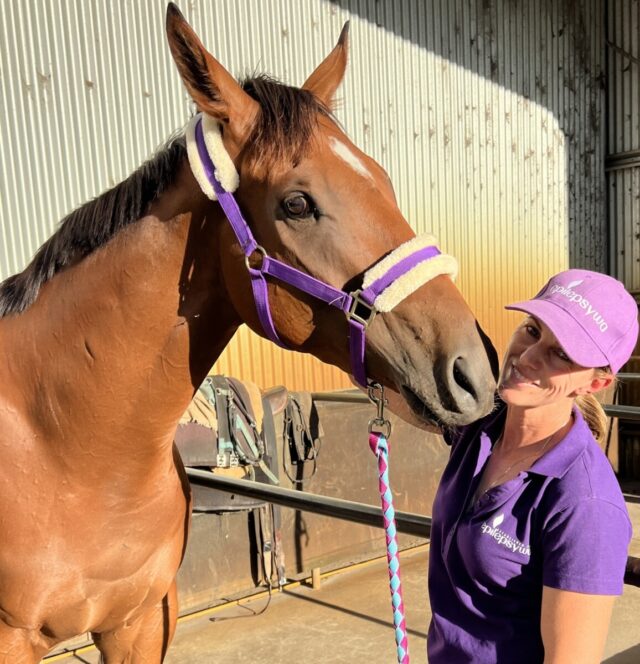Never give up, and there’s no reason you can’t have a normal life with epilepsy.
That’s according to Misty Bazeley of Bazeley Racing in Serpentine – a former WA jockey and mother-of-two with epilepsy.
Misty is one of the March Purple Month ambassadors for Epilepsy WA and is using the opportunity to urge jockeys and equestrians to take the risks associated with head trauma from falls more seriously, and to always wear a helmet when riding.
Seven-and-a-half years ago Misty had a bad fall from a racehorse she was riding in the first race of the day.
Six weeks later, after experiencing non-convulsive seizures, she was found to have suffered bleeding on the brain.
The racehorse owner and trainer went back to race prep and racing as a jockey and tried to ride through what she described as ‘turns’.
But after experiencing 24 of these seizures in a three-day period, Misty went back to her doctor to have further scans done. The scans didn’t pick anything up.
Misty had been told that her ‘turns’ were just anxiety attacks, but a sports psychologist advised her that it wasn’t anxiety.
An appointment with a neurologist found the answer – that Misty’s seizures were being caused by scar tissue from bleeding on the brain she’d had from the fall.
She was diagnosed with temporal lobe epilepsy and focal aware seizures.
Misty has since been placed on three different medications to manage her type of epilepsy.
After she experienced a seizure during a race, and received concern for her safety from a fellow jockey friend who could see that she was disorientated, Misty decided enough was enough and made the decision to retire.
She still rides trackwork daily and experiences a few seizures each month, but Misty is managing her epilepsy with medication and is keen to spread awareness around seizures and epilepsy in the racing industry, and more widely in the equestrian and sporting world.
She’s spoken to other jockeys about seizures from bad falls, and wants the industry and sporting bodies to become more aware of the longer-term impacts of concussion injuries.
“Always ride with a helmet as head injury accidents can easily happen at any time, and realise that concussions can result in seizures and epilepsy – it really is a thing that can result from head trauma,” she said.
Misty adds that a lot of people can be in denial or easily fall through the cracks and the seriousness of their head trauma not get picked up by doctors. So, she advocates for riders to seek a second opinion if their concerns are not being listened to.
“At first I didn’t think it possible that I could have epilepsy as I’m aware during seizures, and they’re not convulsions so it wasn’t what I thought epilepsy to be, and I often have to explain to people that there are many different types of seizures and epilepsy,” she said.
Despite her impairment, Misty had also been able to pass the annual cognitive test required for jockeys to retain their racing licence.
“But any split-second delay when riding a race can be the difference between life and death so it’s not worth the risk and I don’t want to put myself or others at risk,” she said.
Misty has to manage working outside in the heat for long hours each day throughout summer as stress and heat are triggers for her seizures, so she rides early and takes rest breaks as needed.
“I know that after a heatwave I will have seizures and I can go to bed having them or wake up having them, or I’ll be doing yard work and have them – so rest and sleep are vital, along with having good support, and I’m fortunate to have that,” she said.














